
Domestic
09:46, 14-May-2019
China determined to forge a community with a shared future for Asia
By Zhou Jingnan
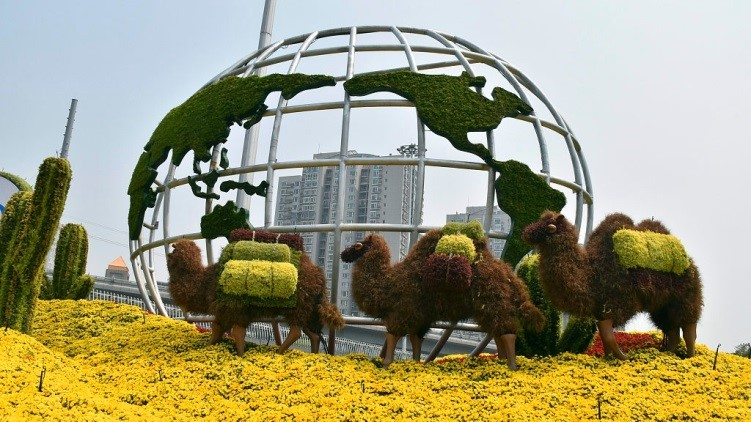
China has promoted the idea of creating a community with a shared future for mankind for more than five years.
Broad as it may sound, the idea paints an aspirational picture: an open, inclusive, clean and beautiful world that enjoys enduring peace, universal security and common prosperity.
The vision applies to any region, but first and foremost Asia. As President Xi Jinping mentioned in his keynote speech at the opening ceremony of the 2015 Boao Forum for Asia annual conference, the pursuit of the community with a shared future for mankind can be achieved through striving for the community with a shared future for Asia.
Read more:
Political equality
As stated in the government work report delivered at the 19th National Congress of the Communist Party of China (CPC) in 2017, the pursuit of a community with a shared future for mankind promotes mutual respect and equal consultation, resolutely rejecting a Cold War mentality and power politics.
It takes a new approach to developing state-to-state relations with communication, not confrontation, and with partnership, not alliance.
In an interview with CGTN Digital, Victor Gao – vice president of the Center for China and Globalization (CCG) – said China's proposal to build a community with a shared future for mankind promptly answers the demand of finding a better approach to rally people from across the globe into a common effort to deal with major global issues in this often fragmented world.
01:12
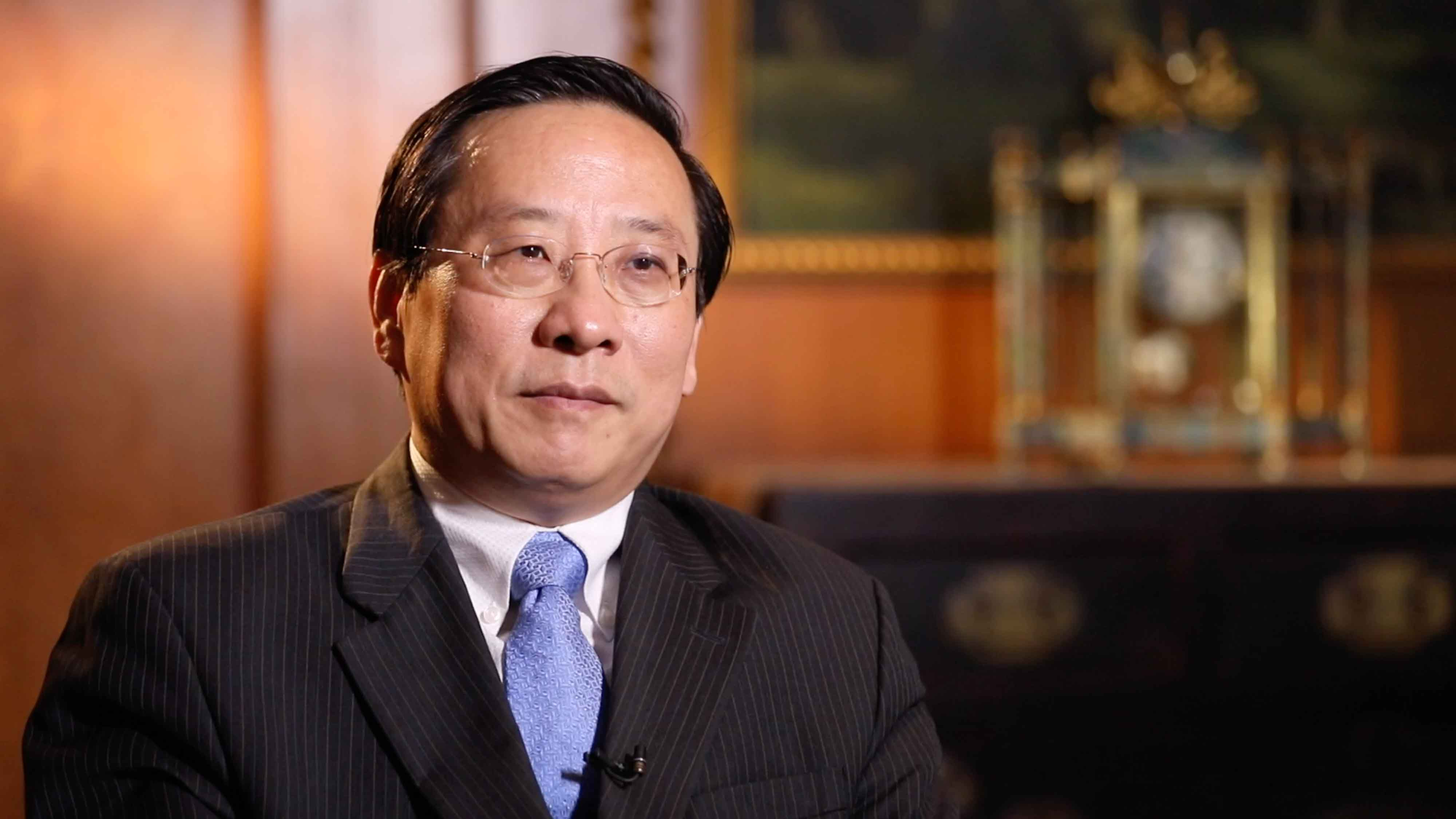
Admitting that challenges, such as military alliances, do exist, Gao emphasized that they do not necessarily entail conflicts.
"The effort to build a community with a shared future for mankind does not exclude all the other major global initiatives. It is actually on top of the existing initiatives and frameworks or organizations, and it can mobilize all the resources we can find in the world."
Disregarding the size of the countries involved, China is committed to delivering the objective of the community of a shared future for mankind, which, in Gao's words, is to achieve better development, uplift people from poverty and promote connectivity of all kinds for the benefit of the people in the world.
Economic connectivity
Advocating trade and investment liberalization and facilitation, and making economic globalization more open, inclusive and balanced, is another pivotal aspect of the idea of building a community with a shared future for mankind.
Exemplary projects centering on that aim include the Belt and Road Initiative (BRI), which was first initiated in 2013, and has generated fruitful outcomes so far.
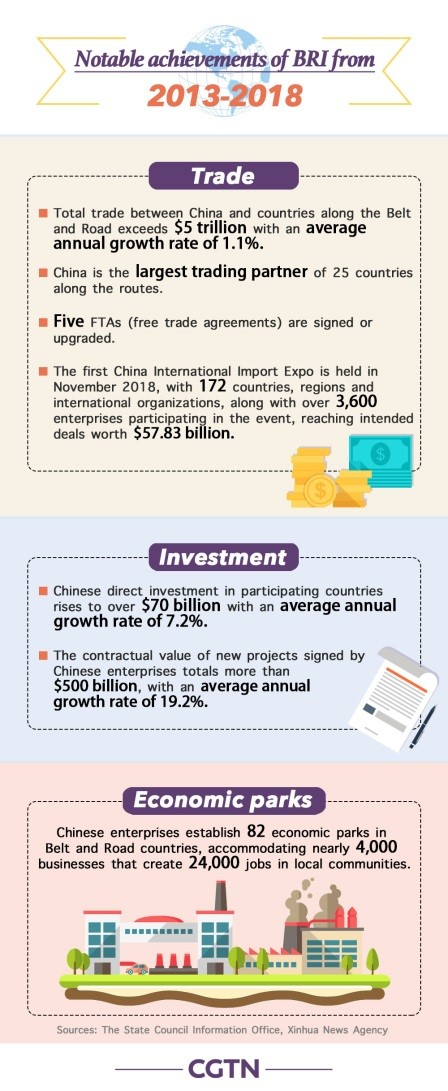
The Asian Infrastructure Investment Bank (AIIB), established in 2016 to better connect people, services and markets, has grown from the initial 57 founders to the current 97 approved members worldwide.
In an interview with CGTN's Zou Yun, AIIB President Jin Liqun spoke highly of the achievements made by the bank in the past three years. He pointed out that lending programs worth 7.5 billion U.S. dollars have been approved by the bank's board, leveraging orders worth 40 billion U.S. dollars in investment in infrastructure and other productive sectors in participating countries.
05:56
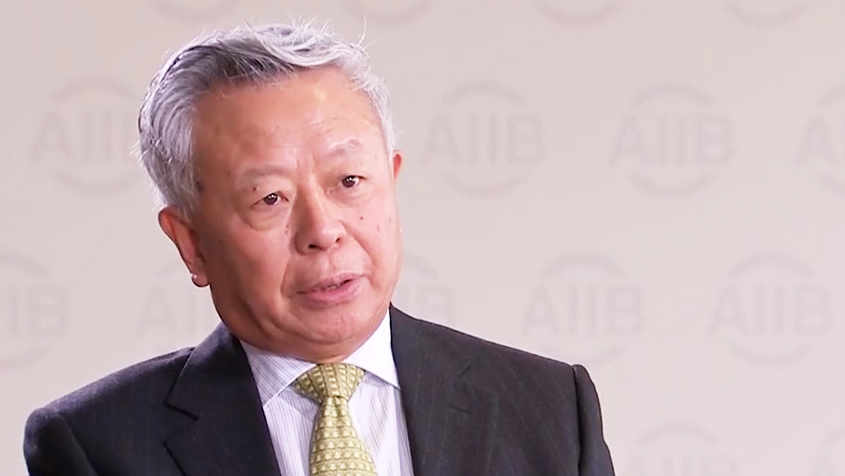
Despite the fruits being generated in China's cooperation with other countries, particularly ones in Asia, in building infrastructure facilities such as roads, bridges and ports, some Western countries are ramping up accusations about China dragging those countries into a "debt trap" by offering them loans.
When asked how China could better fend off those negative comments, Gao cited the short history of projects like the BRI, saying it is somewhat expected if controversies or even criticism ensue.
But he also suggested that China be more transparent and make itself better known to other parties concerning those initiatives.
01:55
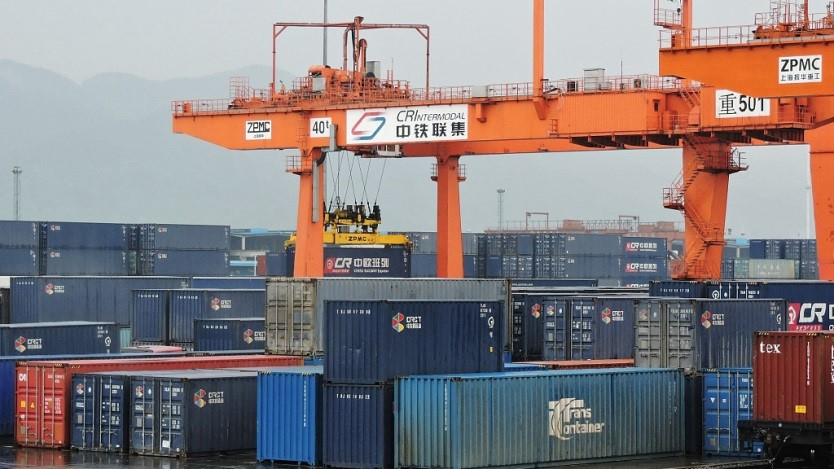
Wang Zhengxu, professor of political science at Fudan University, said that on this issue, the parties involved are intelligent enough to make their own judgments, adding that some very rigorous studies released recently by American and European researchers also clearly rejected the debt trap theory.
Like Gao, Professor Wang also provided his own caveat, "Of course China should always keep a humble attitude when working with BRI partners, and always take the partners' voices and perspectives into account."
Security concept
Ever since taking office, President Xi has elaborated numerous times at major diplomatic occasions his vision on how to build a safer Asia and a more secure world.
In his eyes, peace and security should not be for the privileged few, and the zero-sum calculation of the Cold War mentality needs to be made a thing of the past.
The Chinese president holds that the all nations should come together from different directions to resolve disputes through peaceful means, and should reject the arbitrary use or threat of force.
The Conference on Interaction and Confidence-Building Measures in Asia (CICA) is one mechanism with such a mission for regional security and development issues.
While attending a meeting in New York in September last year with foreign ministers or representatives of other CICA members, China's State Councilor and Foreign Minister Wang Yi said since China assumed the CICA presidency in May 2014, the mechanism has been a security cooperation forum that has the widest coverage, largest membership and most representation in Asia, and it has played an important and constructive role in promoting regional stability and prosperity.
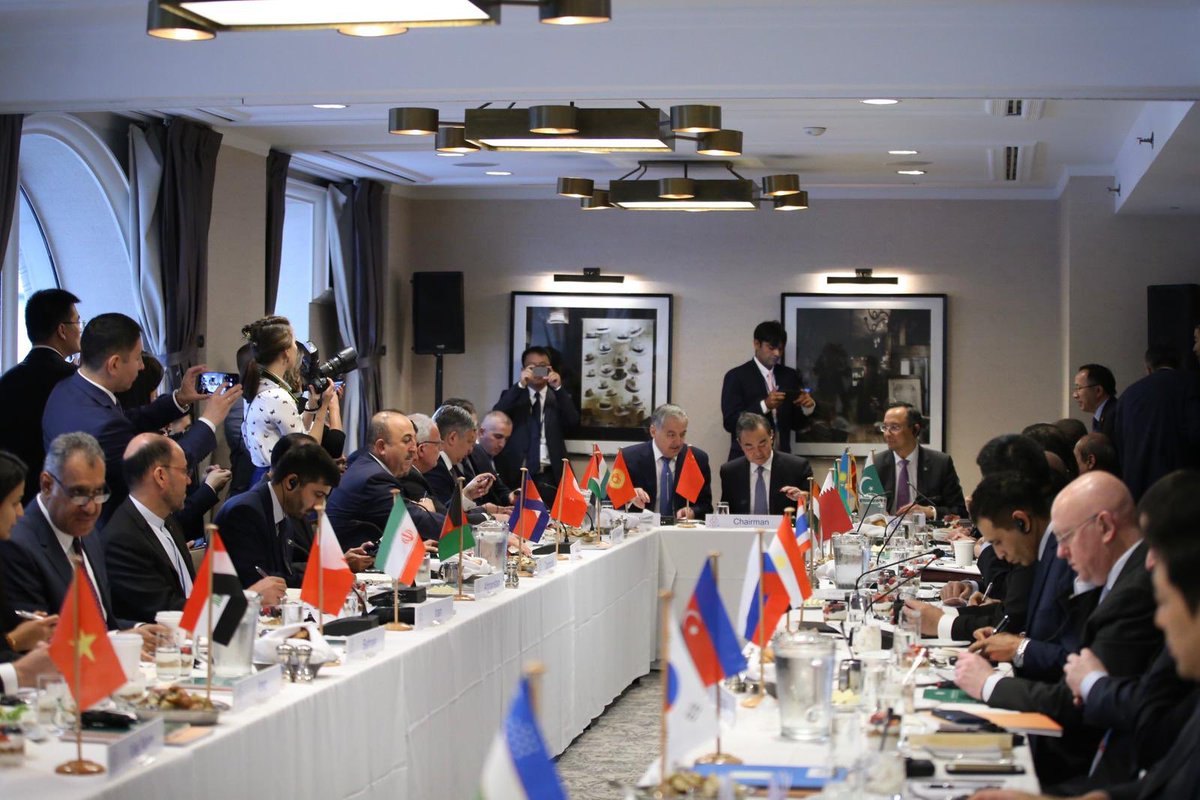
Foreign ministers from CICA members meet in New York, September 24, 2018. /Minister of Foreign Affairs of Republic of Turkey Photo
Foreign ministers from CICA members meet in New York, September 24, 2018. /Minister of Foreign Affairs of Republic of Turkey Photo
Bordering 14 countries on land, it is inevitable for China to fall into territorial disputes with some of them. However, under the guidance of upholding dialogue and negotiation, through the years, China has already reached border treaties with 12 countries.
When it comes to maritime disputes, China has also managed to scale down the tensions. On the most heated topic of the South China Sea, China has been striving to work out a settlement.
In August 2017, China and countries of the Association of the Southeast Asian Nations (ASEAN) drew up and approved the framework of the Code of Conduct in the South China Sea.
One year later, China and ASEAN arrived at a single draft negotiating text of the COC in the South China Sea. It has also expressed its hope to complete talks on the COC in the next three years.
"China is very, very big compared with all its neighboring countries, but resorting to force, or resorting to war, is not China's strategic option at all," Gao said. "China is always worried that it does not have more friends, so China is very eager to befriend as many countries as possible to build up goodwill so that we can calm down the situation and resolve the problems as they are."
With all the sincere and good intentions for peace and prosperity in the world and Asia alike, China is about to host the Conference on Dialogue of Asian Civilizations starting from May 15.
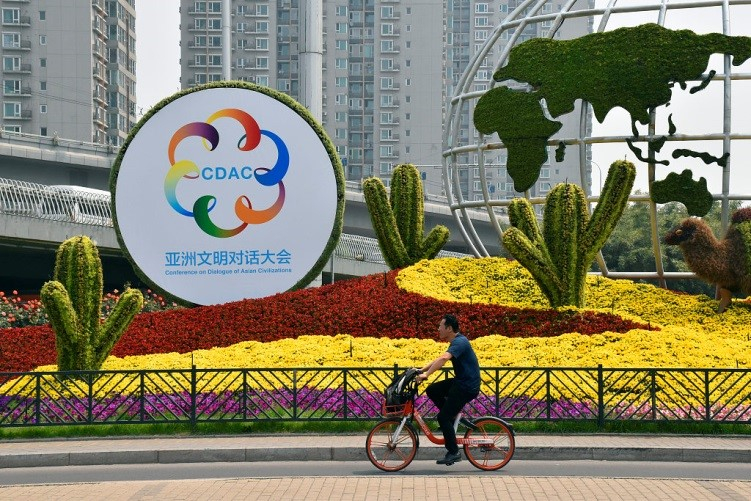
The Conference on Dialogue of Asian Civilizations runs from May 15 to 22. /VCG Photo
The Conference on Dialogue of Asian Civilizations runs from May 15 to 22. /VCG Photo
The meeting is expected to bring together representatives from 47 Asian countries and countries outside the continent for mutual learning and exchange of various civilizations.
"In recent years, we have witnessed wars and conflicts of many kinds in certain parts of Asia especially in the western part of Asia," Gao said, referring to the necessity of the conference. "This has been wrecking mankind as a whole and has caused a tremendous amount of problems, including the refugee problem, in other parts of the world. Therefore, when we talk about civilizations and development in Asia, it really has a bearing on the whole world, and I would say people and governments in Asian countries really want to have a dialogue so that we can really get a better handle on development, on how to maintain stability and how to devote our limited resources to economic development."
(Infographic by Yu Peng)
(With inputs from Xinhua)
4km

SITEMAP
Copyright © 2018 CGTN. Beijing ICP prepared NO.16065310-3
Copyright © 2018 CGTN. Beijing ICP prepared NO.16065310-3